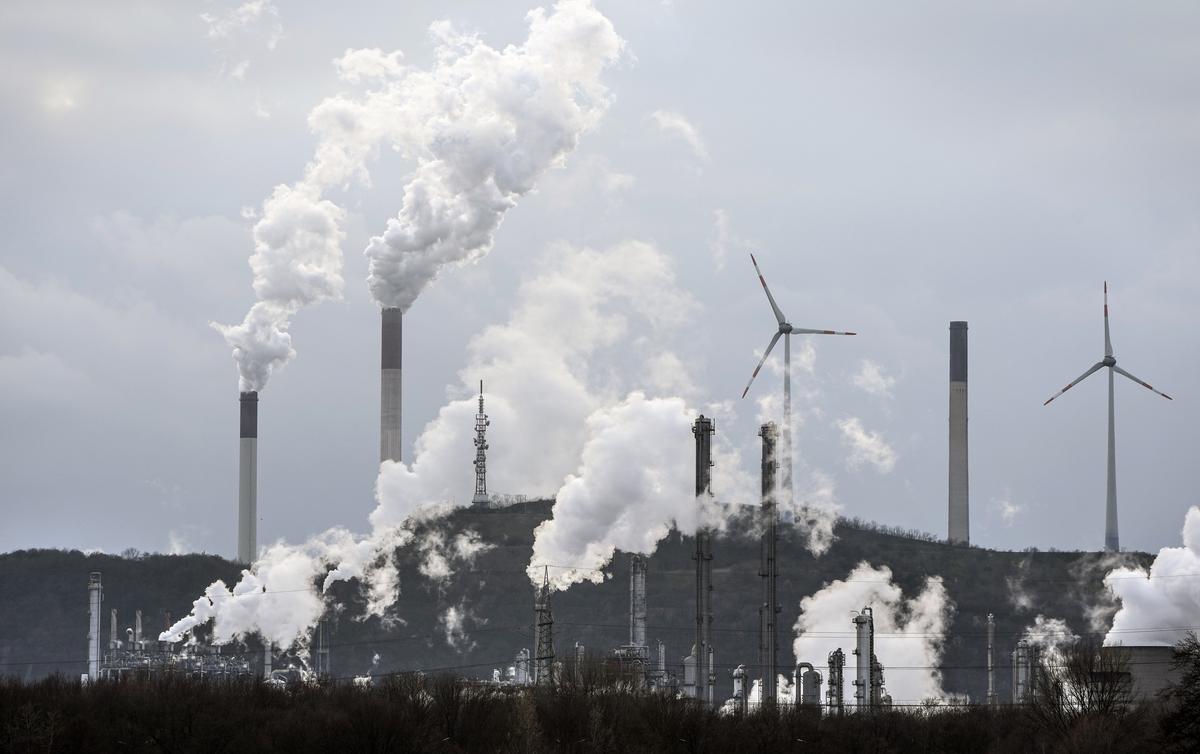Live Classes

Highlighting the need for urgent climate action, the Intergovernmental Panel on Climate Change (IPCC) released its Synthesis Report for the Sixth Assessment Cycle on March 20 in Interlaken, Switzerland. The report emphasised the need to reduce greenhouse gas emissions and adapt to human caused climate change through “mainstream effective and equitable action” for a “liveable sustainable future for all”.
What does the report say?
The Synthesis Report is a compilation of the main findings of the IPCC’s Sixth Assessment Report, based on results from three Working Groups (WGs).
The report highlights the urgency of drastically reducing the emission of greenhouse gases and thereby limit rising global temperatures by 1.5°C from pre-industrial levels, set by the Paris Agreement. Despite the IPCC’s warnings in 2018, the increase in greenhouse gas emissions continued so much so that the global surface temperature has already warmed by 1.1°C over preindustrial levels, leading to extreme and/or unpredictable weather events that risk human health, fortunes, and ecosystems.
Noting the impact of the rise in temperature, the report states that such events have made people much more susceptible to food insecurity and water shortages with vulnerable populations disproportionately facing the brunt of climate change. The report highlighted the economic loss and damages incurred due to climate change and stressed on the need for financial resolution for a more equitable world. “Climate justice is crucial because those who have contributed least to climate change are being disproportionately affected,” said Aditi Mukherji, one of the 93 authors of the report, in a press release.
What are the implications for India?
India’s priority should be to minimise loss and damage in terms of lives, livelihood and biodiversity, and accelerate equitable action and adaptation. “The new IPCC Synthesis Report has a sobering message on impacts: warming has already reached 1.1°C, this is unequivocally due to climate change and the impacts are likely to be greater at a particular temperature than earlier thought,” Navroz Dubash from the Centre for Policy Research, told The Hindu.
“Several messages emerge that are salient for India: It proposes an approach emphasising ‘climate resilient development’. This recognises that development is important, but the quality of that development, whether it locks us into low or high carbon choices or resilient development is important,” he added. As a developing country, India can lower its per capita emissions through energy efficiency policies already being implemented in almost every sector, Joyashree Roy of the Asian Institute of Technology and one of the authors of the report, told PTI. However, it can also decarbonise the energy sector by using cleaner options like solar and renewable energy, she added
What is the way ahead?
The report suggests climate resilient development that will not only mitigate the effects of climate change but also provide wider benefits. Access to clean energy, improving air quality, increasing employment opportunities, boosting healthcare through technology, and delivering equity are among the report’s recommended goals to help adapt to climate change. The report also foregrounded the role of financial investments to achieve climate goals and encouraged public funding through central banks, government and financial regulators to reduce emissions, scale up climate resilience and protect marginalised communities.
What is IPCC, why is its report important?
The Intergovernmental Panel on Climate Change (IPCC) is the body of the United Nations that assesses the impact of climate change and its future threats. Along with this, it also suggests options to reduce the damage caused and keep the temperature of the world stable. It was established in 1988 by the World Meteorological Organization and the United Nations Environment Programme. This organization releases reports on climate change every few years. The report is prepared by experts and reviewed and unanimously approved by the member states of the United Nations. This report is under review in Interlaken, Switzerland. This report helps policy makers to plan for the future.
The Synthesis Report has three sections –
How many review reports so far?
The 5th review report of IPCC came in 2014. Based on the same report, it was decided at the Paris Climate Summit that global warming has to be maintained at 1.5°C by the end of this century. This is the 6th report. In this, there will be a summary of the reports of 8 years from February 2015 till now i.e. Synthesis Report. Important points of all the reports from 2018 will be included in this. This review report will form the basis of further discussions on climate change.
What is the Paris Agreement?
At the 2014 Paris Climate Summit, it was decided that every effort would have to be made to keep global warming below 2 °C compared to pre-industrial levels. The goal was to limit the increase in warming to 1.5°C going forward. But in the 2018 report of the IPCC, it was beginning to appear that the goal set to limit global warming to 1.5 degree Celsius is going to exceed this limit very fast. According to the report of the World Meteorological Organization, global warming has gone above 1.2 ° C compared to the pre-industrial level. It is very possible that in five years it will exceed the target of 1.5 ° C.
Issues on which there is disagreement?
Fossil fuel-like diesel-petrol has an important contribution in increasing global warming. But there is no consensus on phasing out their use gradually. Recent media reports have suggested that Europe may push for a global commitment to phase out fossil fuels by 2050.
Download pdf to Read More